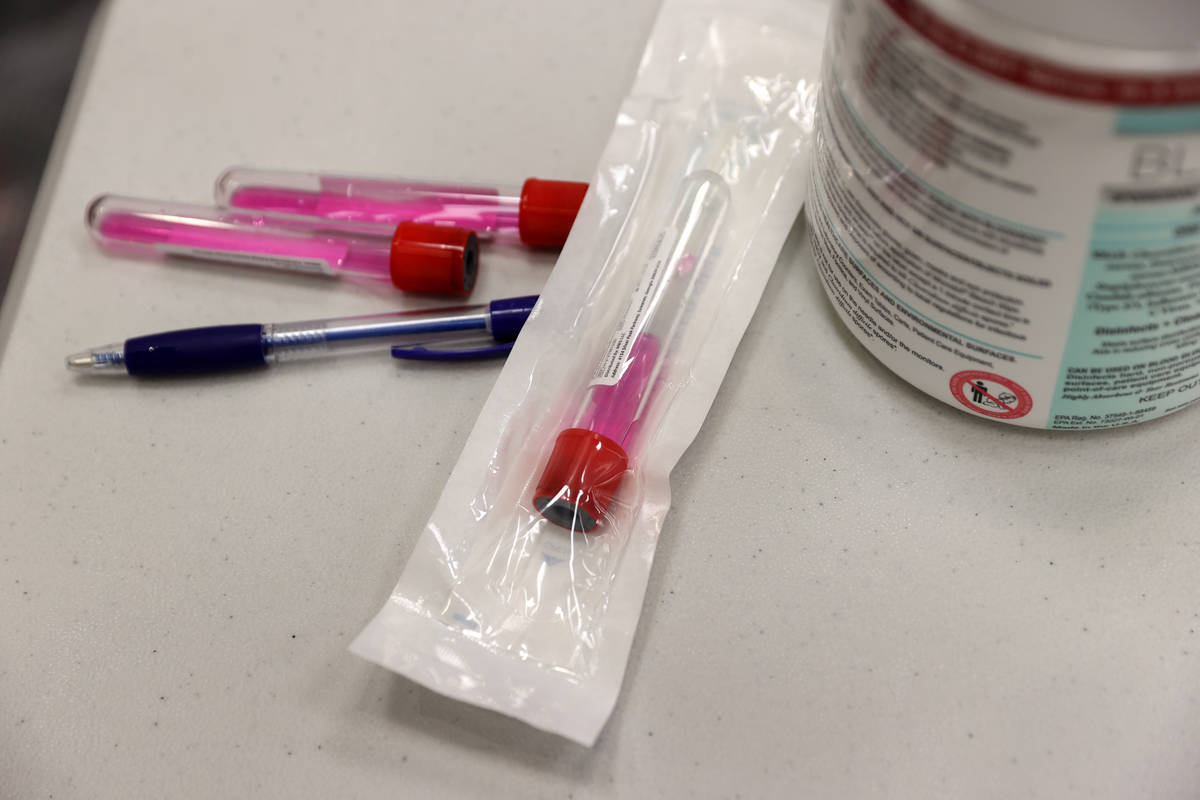When will U.K. coronavirus strain come to Nevada?
When will the new — and more contagious — strain of the coronavirus from the U.K. arrive in Nevada?
“We shouldn’t mince words or cloak our scientific hypotheses on this. … It’s already here, most likely,” said Mark Pandori, director of the Nevada State Public Health Laboratory in Reno.
“The only reason that we don’t see many cases of it in the United States is that we’ve not stood up any rational means of surveillance for it,” Pandori said in an interview Wednesday.
To solve this problem in Nevada, Pandori and molecular biologist Andrew Gorzalski have designed a test that will allow the state lab to screen all positive COVID-19 tests in the state for the virus variant. The lab will start to use the test as soon as late next week.
In the meantime, the lab is conducting genetic sequencing on a tiny fraction of positive COVID-19 tests, a time-consuming process that has not yet turned up any cases of the new variant. New equipment funded by the CARES Act will help to automate the process.
Meanwhile, Colorado and California this week each identified their first cases of the new strain of coronavirus, which scientists in the U.K. believe spreads much faster than previously identified strains.
“As long as the virus is spreading within a community, you’re giving it opportunities to evolve,” as it has into the U.K. strain known as B.1.1.7, Pandori said. “And we should not be impressed or surprised if we should find much more of it here in the United States.”
There is some good news. Like the strain of the virus that became dominant in Nevada and across the U.S. this summer, the new variant doesn’t appear to be any more lethal than the half-dozen strains currently circulating.
“The data gathered from interactions with this strain don’t necessarily indicate that it’s a more virulent strain, only a more successful strain,” Pandori said.
And although the virus is mutating, it is doing so slowly, which means that the current vaccines to combat COVID-19 are expected to be effective against it, he said.
Moreover, the vaccines by Pfizer and Moderna being distributed in the U.S. use genetic code to stimulate the immune system in a vaccine recipient — code that can be readily altered to respond to virus mutations, Pandori said.
The combination of the new sequencing equipment and the test for the variant will put Nevada on the forefront of determining the prevalence of the strain, work that has fallen primarily to the Centers for Disease Control and Prevention, he said.
Contact Mary Hynes at mhynes@reviewjournal.com or 702-383-0336. Follow @MaryHynes1 on Twitter.










































